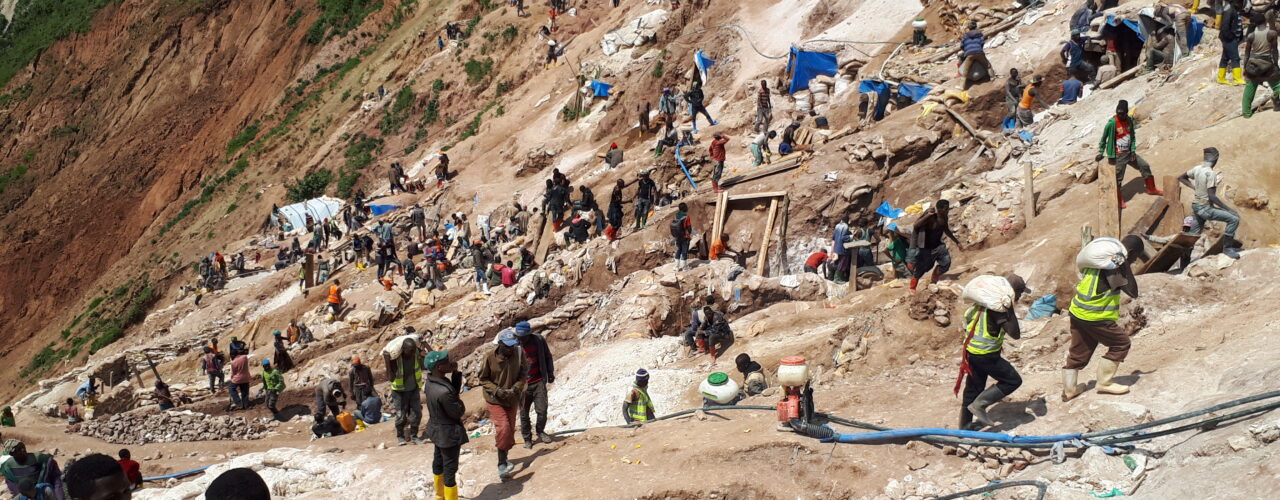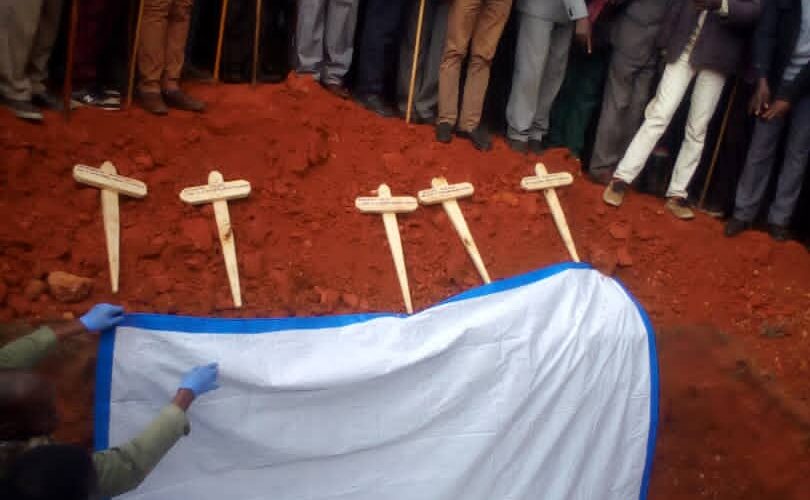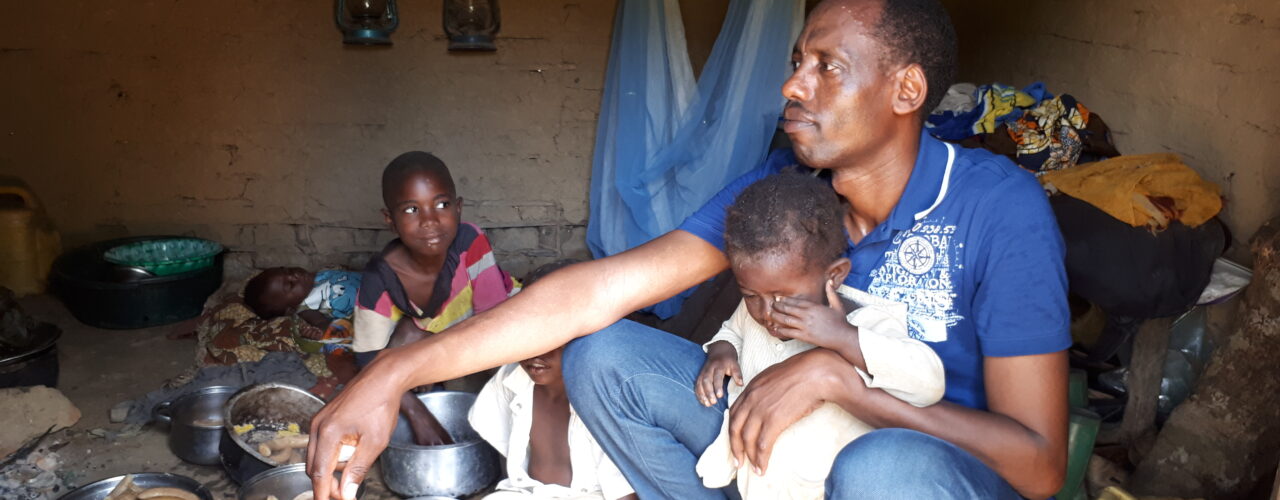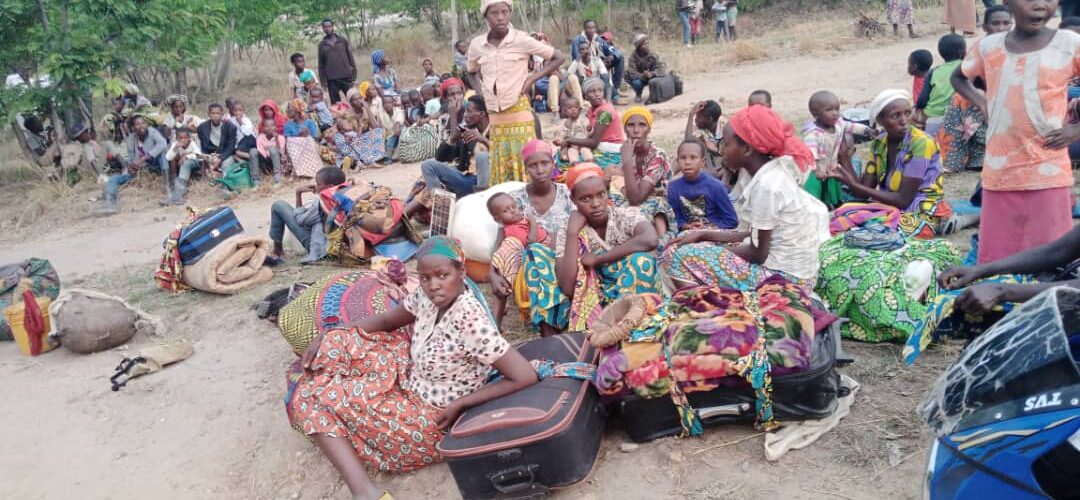
Could you explain what the situation of the Banyamulenge is – unknown to many - , and what the grounds are for the hate against them?
I admittedly believe that the Banyamulenge situation hasn’t received the attention it deserves. The lack of attention is due to several reasons including how many people are fed up with the complex setting of violence in Eastern DRC, the inaccessibility of the region inhabited by the Banyamulenge, and the tendency to generally portray the Banyamulenge civilians as “powerful” combatants. However, there are also maneuvers from their foes intending to hide their plight. Attacks against the Banyamulenge is something that has been happening for a very long time and it is an experience that has originated from the colonial mischaracterization of local communities in the Africa Great Lakes region that defined the Banyamulenge among other communities as “newcomers”. For more than a half century now, the Banyamulenge have specifically been discriminated, massacred, and forced to flee the regions they inhabited.
In recent years and mostly since 2017, their plight has worsened. The recent situation can be summarized as such: Their entire homeland in the Highlands of South Kivu (Fizi, Mwenga, and Uvira territories) has been destroyed with more than three hundred villages burnt at ashes between 2017 to present. During these attacks, thousands have been killed while organized local and foreign-armed combatants pillaged their cattle. Cattle constitute a source of income and livelihood for most of the Banyamulenge, but also part of their culture and identity. Many have been forced to flee outside of DRC while those remaining in South Kivu are besieged in small and tiny areas without access to their farming fields. The besiegement has prevented the Banyamulenge to access humanitarian assistance. For years, the Banyamulenge are also victims of hate speech and online campaigns demonizing them. We have been recently confronted with scenes in which the Banyamulenge were lynched, and their dead body eaten by their killers. It is extremely worrying as the Banyamulenge are at brink of their extermination.
We have been recently confronted with scenes in which the Banyamulenge were lynched, and their dead body eaten by their killers.

Where do people go when their villages are burned to the ground and when they leave their villages?
After houses are burned, the Banyamulenge remain in their homeland territories. They have been forced to live in camps (sites) as internally displaced people (IDPs) under regular and constant military attacks. In some instance, these IDPs sites were attacked twice a week for more than three consecutive years. For the time being, the Banyamulenge live in few IDPs sites, Minembwe, Mikenge, Murambya, and Bibogobogo. What makes the difference between the Banyamulenge and their neighboring communities who are considered as “native”, the former cannot flee in any directions and be safe? Many of those who have tried to do so have been killed on their journey while this is not the case for members the latter communities.
If you are talking from your experience, who should/can intervene?
This is the most puzzling question. Though their status as citizens of this country is contested, the Banyamulenge are primarily Congolese. They should be protected by the Congolese state. However, this is not the case. For half a decade (if one considers violence that erupted in 2017), the unprecedented destruction happened at the watch of, and mostly with the complicity of the Congolese state and its army. It’s been very clear that the Congolese state and its army have failed to protect the Banyamulenge and their properties. While the effectiveness of UN peacekeeping mission has been so controversial, its capability to protect the Banyamulenge is largely questionable due to the influence of the Congolese state and its army whom they must cooperate with.
I modestly suggest that there should be a specific scheme through which ethnic minorities under threat of extermination are protected in Eastern DRC and elsewhere in places where people face extermination. Whoever thinks to protect these groups at the edge of extermination should consider the risks of involving actors such as state-affiliated security services which undermine efforts to prevent violence and protect civilians. Maybe, the East Africa Community Regional Force could bring in new insights; but I remain skeptical based on the experience of the Banyamulenge and other minorities in Eastern DRC.
It’s been very clear that the Congolese state and its army have failed to protect the Banyamulenge and their properties.
How can (I)NGO’s help in a conflict like this?
NGOs, whether international or local can support on one hand by raising awareness about this tragedy; and on the other hand provide humanitarian assistance. Humanitarian assistance is highly needed when it comes to the Banyamulenge situation because of starvation and impoverishment. Recently, the Congolese military commander, General Andre Uketi Ehonza has openly revealed this state of besiegement and promised to end it. However, it is yet hard to believe this as long as the Congolese national army has played a major in creating and sustaining the besiegement. The main support they receive comes from the Banyamulenge diaspora and it remains questionable why humanitarian organizations have largely failed to support. In a country with limited state authority, (I)NGOs can play a role to re-build the broken societal tissue by bringing together local communities and work towards reconciliation.
You are writing many articles, blogs and tweets on this topic. What do you like to achieve by doing so?
I don’t know what to say. I’m not sure if I’ve written as many as needed articles, blog posts, or tweets. I wish I had done more than I did, though not sure if they would have raised needed awareness. We do say (an adage) in my native language “you never chose where to exit from if caught in burning house”. This is my translation of the adage but for sure it is deeper when expressed in its original words.
I’m a researcher, an activist and a “contested native” who have relatives and friends caught under regular attacks in this region. We should recall that this is a form of violence where an individual belonging to a targeted ethnic group can at any time be killed regardless of his or her social position. Whenever someone is killed, burnt alive, or put in jail, I do see that If I were at the “wrong” place at this specific time, it would have been me.
As a blogger, I’ve been following this new recent violence since 2015. I visited my native region early 2019 as a part of my PhD fieldwork research. I see things from all these angles but specifically, I understand how minor questions do unlikely attract interests of well-established and traditional media which tend to scoop on hot debates (if mostly brought by influential figures). I’m not blaming anyone, but from my personal experience, there have been less interest to go deeper in delving into risks facing some ethnic minorities in Eastern DRC and this has diverted attention to some urgent questions. In one way or another, I do feel primarily concerned and think that I can keep the pace of sharing my experience in regards to this specific context to release myself but I also expect that someone will later realize that there is a forgotten issue somewhere in the Kivus.
I should humbly recall that in March 2021, Tom and I produced a short paper on hate speech targeting the Banyamulenge and how dangerous it is when proliferated by political and influential figures within the Congolese political arena. The paper is titled as “Hate Speech and Genocide in Minembwe, D.R. Congo” and is accessible at Genocide Watch website. I am now happy that many have understood this danger and we’ve recently seen many organizations and the UN Special Advisor on the Prevention of Genocide expressing their concerns on this matter.

How is it for you to see that your own people are suffering?
I sincerely feel pain whenever I see anyone who experiences violence. For the last three decades, the eastern Congo has experienced extreme violence culminating to millions of civilians who have died (as largely believed). I do feel specifically shocked that my people, the Banyamulenge are being killed because they were wrongly portrayed as “foreigners”. The danger behind this form of violence is the way perpetrators mobilize to wipe out an entire community. This is a simply genocidal killing mobilizing for a “noble cause” of chasing people who have been mischaracterized as “foreigners-invaders”.
I sincerely feel pain whenever I see anyone who experiences violence.
What is your hope for the future for all these people/the country?
My people are resilient. Despite challenges and violence they face, they are determined to survive but also defend their rights as Congolese in Congo. Moreover, I hope that KUNO’s voice along few others could change the way the Banyamulenge question is seen.
If people are interested in reading / listening / viewing more on this topic, where do you recommend people to start?
The precedence of what is currently happening to the Banyamulenge “invaders” in the Africa great lakes region can be found in Mahmood Mamdani “When Victims Become Killers: Colonialism, Nativism and the Genocide in Rwanda”. The Banyamulenge caught under the hammer and anvil can be read in “Eastern Congo: The Plight of the Banyamulenge” and recently Thomas Shacklock describes it as “Addressing the Banyamulenge’s Plight in DR Congo”. Ndahinda and Mugabe have recently published an interesting article “Streaming Hate: Exploring the Harm of Anti-Banyamulenge and Anti-Tutsi Hate Speech on Congolese Social Media”. In the past, Koen Vlassenroot, Judith Verweijen, Antony Court, Stephen Jackson, Kevin Dunn, and Jason Stearns have extensively written articles on the Banyamulenge question. A recent article by Ntanyoma and Hintjens “Expressive violence and the slow genocide of the Banyamulenge of South Kivu”. Genocide Watch (www.genocidewatch.com) has recently published several posts to alert on the Banyamulenge situation and other minorities in Eastern DRC.

About me, Delphin
My name is Delphin Rukumbuzi Ntanyoma, I hold a PhD degree in Economics of Peace and Conflict from the Institute of Social Studies/Erasmus Rotterdam University in the Netherlands. My PhD research is focused on Micro-level Analysis of Violent Conflict in North Kivu and South Kivu/the Democratic Republic of Congo (DRC). One of the specific contributions of the PhD thesis is the way it establishes the link between combatants’ motives to engage and disengage in violence vis-a-vis their individual socio-economic and political characteristics. The analysis follows to large extent individual life trajectory lenses. The study has recorded and analyzed motives in relation to social and economic characteristics before, during and after combat life. In this study, I have compared civilians and ex-combatants’ decisions to join armed groups and rebellions, their motives to change armed groups as well as motives behind decisions to leave their struggles. It is an interesting study that departs from youth early experience to the point of choosing to join or not join an armed group, combatant’s experience during the combat life, encounters to reintegrate their respective communities when someone has decided to demobilize. The study is largely unique in its contribution to explore micro and meso-level motives to resort to violence.
During this research that gives a broad picture of the complexity of violent setting in Eastern DRC, I have also gained an interest to understand online and offline violence targeting some ethnic minorities in Eastern DRC. Besides that, I’m the author of “Behind the Scenes of ‘Banyamulenge Military’: Momentum, Myth, and Extinction”, co-author of “Expressive violence and the slow genocide of the Banyamulenge of South Kivu” and others online articles (co-authored), interviews. Since 2013, I run an online Blog (The Eastern Congo Tribune) which contains more than 400 blog articles: www.easterncongotribune.com).
Read more
Read another interview about the genocide of the Banyamulenge here.
